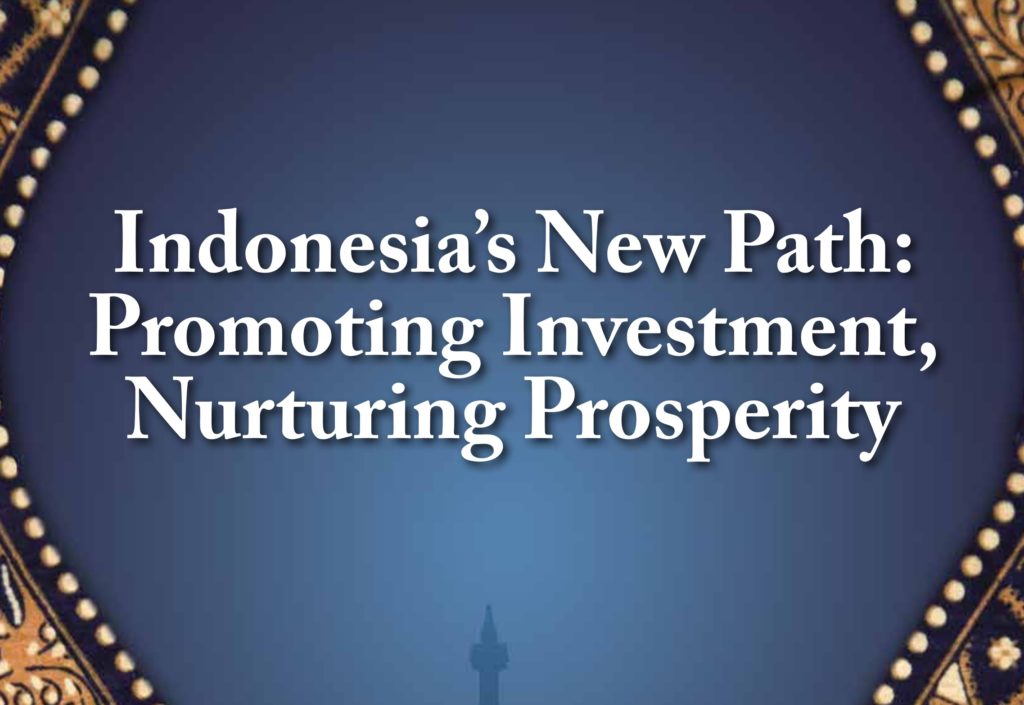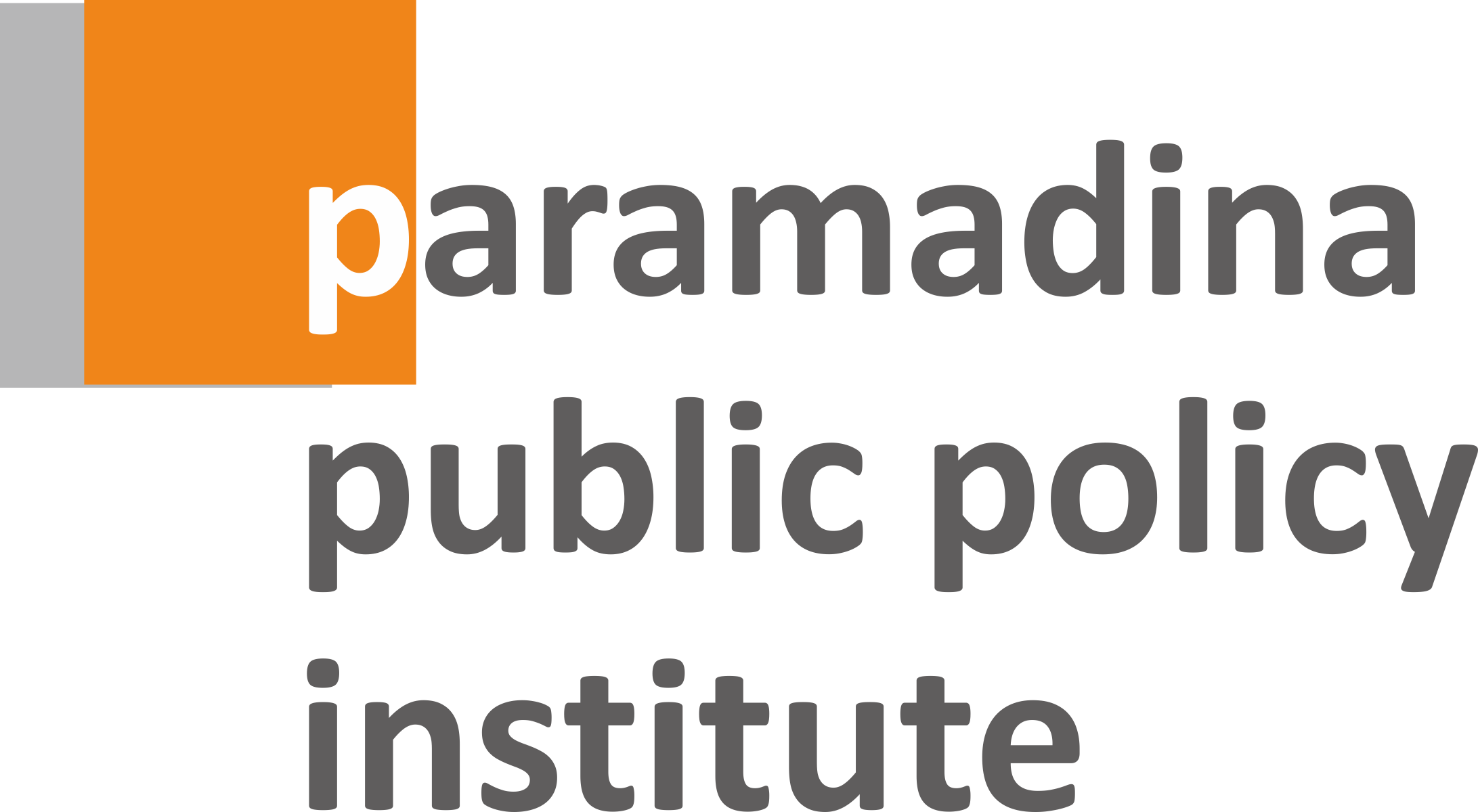
PPPI’s Research Team:
Wijayanto Samirin, Bima Priya Santosa, Muhamad Ikhsan; Junaidi, Iin Mayasari, and Muhamad Rosyid Jazuli.
2014
Brief Introduction
Indonesia at the end of 2014 is at the beginning of a new era filled with both great challenges and tremendous hope. The election of Joko “Jokowi” Widodo as president after the most closely fought contest in the nation’s history, marks the first time an entrepreneur and a “common man” has become Indonesia’s president.
We are confident that the outpouring of enthusiasm that greeted Jokowi’s recent inauguration will help ease any lingering political tensions between the new administration and the legislative branch. There is indeed an air of change in the country.
Foreign investors have generally been impressed by the broad economic policy outlines sketched by the team of President Joko and Vice President Jusuf Kalla. Streamlined permit issuance, more rational regulations and cuts in a crippling fuel subsidy have all been promised and would be warmly greeted by investors. The US investment community is committed to working with the new government and legislature openly and transparently to realize our mutual goals of a more prosperous and forward-looking Indonesia.
Against this backdrop, we are reminded that American investors have been part of the Indonesian story for many decades, assisting in the growth of the country through numerous political transitions.
US investment in Indonesia dates back to 1924, when geologists from Standard Oil of California (now Chevron) first began operating in Sumatra. As our 2013 study, “Partners in Prosperity: US Investment in Indonesia,” found, 1American companies invested roughly $65 billion in Indonesia during the years 2004-2012.
More importantly, as that study also found, US companies stand poised to invest another $61 billion over the next five years, assuming that conditions are ripe for the kind of ongoing partnerships that can assist Indonesia to meet its goals of reducing poverty and building a modern economy.
Mutual Progress
To that end, AmCham Indonesia and the U.S. Chamber of Commerce were asked last year by the Indonesia Investment Coordinating Board (BKPM) to follow up on our initial study with recommendations for a way forward that is to the mutual benefit of the country and US investors.
The new study, “Indonesia’s New Path: Promoting Investment, Nurturing Prosperity,” prepared by the Paramadina Public Policy Institute, is one result of the ongoing Investment Initiative we have undertaken with BKPM and our partners in Kadin and Apindo. We believe that implementing the recommendations in the report will encourage US and other foreign companies to get off the sidelines and increase their commitment to Indonesia.
To compile the recommendations, in-depth interviews were conducted with senior executives of multinational companies. These were augmented by discussions with experts, focus groups and policy makers. Not surprisingly, the interviews and discussions yielded a long list of issues. We chose to focus only on the three to four most immediately critical issues per sector.
As our 2013 report highlighted, US companies are among the largest – if not the largest – FDI investors in Indonesia. In that report, US investors listed three major constraints to future investment: (1) regulatory uncertainty and inapplicability of regulations; (2) lack of efficient and reliable infrastructure; and (3) lack of quality human resources, especially for technical and managerial positions. In broad strokes, we believe the government must urgently tackle these constraints to unlock future FDI while also getting at the kind of specifics we cover in this report.
Competition eases the road
Each sector, of course, contends with different variables. Industries that rely heavily on government licenses and have limited market competition tend to face a more challenging investment environment compared to those that operate in sectors with more open market competition. In short, sectors in which the government determines the “winners” and “losers” have tough policy challenges and greater uncertainty. Sectors in which market competition is the key factor to succeed tend to face fewer policy hurdles. In this sense, the extractive industries and oil and gas sectors face the greatest regulatory challenges, while consumer goods, technology and financial services, even though they face significant issues, tend to be less problematic.
Regulatory certainty is crucial to creating a business climate that will attract and retain investment, both domestic and foreign. FDI operates in a global market in which countries compete to attract more FDI, especially high quality FDI that creates added value for host economies.
While Indonesia has made a lot of progress in promoting a better business environment, it still lags behind its main competitors for FDI. In short, Indonesia is not realizing its full potential. Indonesia has a long list of benefits other countries cannot offer, such as rich natural resources, a huge domestic market, a large work force and a relatively stable political environment.
Recommendations
Policy recommendations should be clear, measurable and applicable. They should not be too general or too narrow. The policy recommendations we outline follow this approach. We begin with an abridged version of our recommendations, which is followed by a longer look at the research and detail behind each recommendation.
The report covers several sectors: oil and gas, extractive industries, information technology, consumer goods and health care, agriculture and financial services. We start with a set of cross-sector policy recommendations that have an impact on the overall business environment.
Our recommendations are intended to be seen in the spirit of cooperation and equal partnership that has long marked the experience of American companies operating in Indonesia. These suggestions represent the continuation of an ongoing dialogue between American investors and the Indonesian government.
We strongly believe the new government has the courage and commitment to promote policy reform and improved regulations as a way to facilitate greater investment for the good of the Indonesian people. As major investors operating in Indonesia, we are committed to working hand-in-hand with government to reach the mutual goal of good, well-implemented investment policies. At stake is the future growth of the Indonesian economy and the long-term well-being of the Indonesian people.
The US investment community is committed to working with the new government and legislature openly and transparently to realize our mutual goals of a more prosperous and forward-looking Indonesia.
__________________
This report is another piece of Paramadina Public Policy Institute. We highlight challenges and opportunities in letting Indonesia grow and unlock its potential where bettering off its FDI climate is key.
This Indonesia’s New Path: Promoting Investment, Nurturing Prosperity report was published by Amcham Indonesia in 2014.
